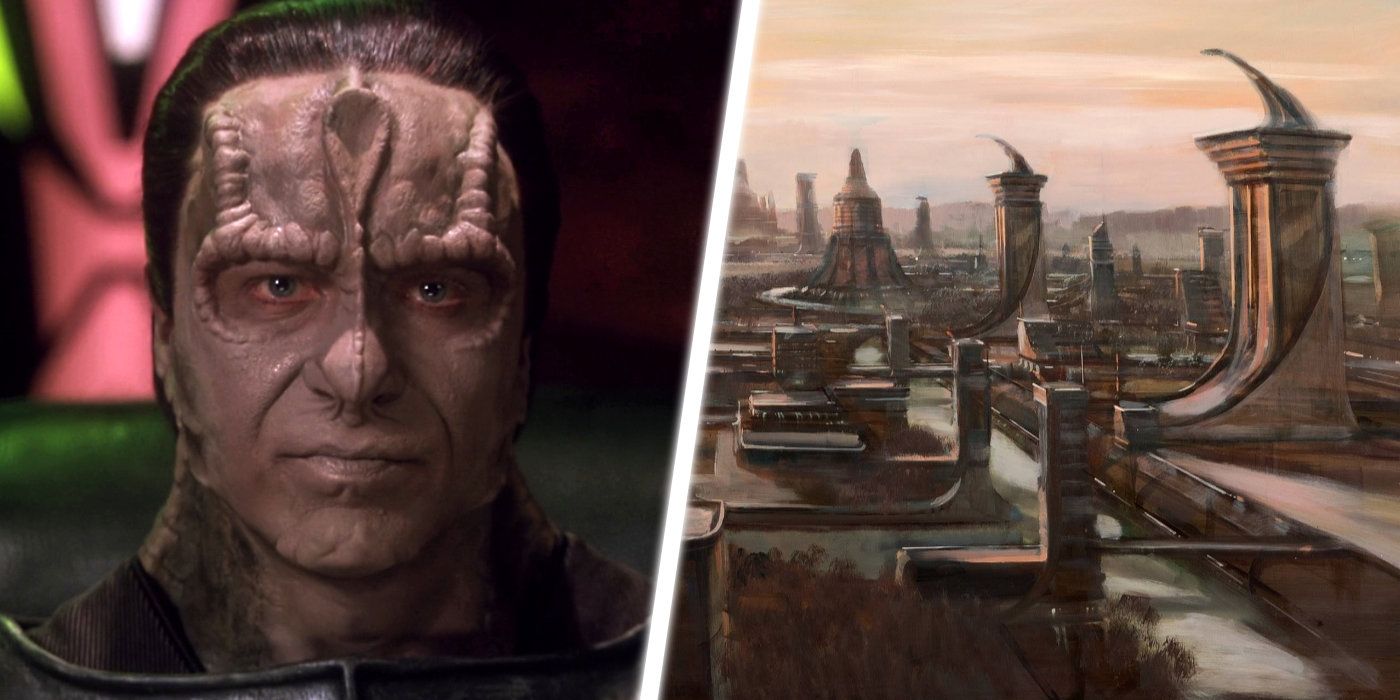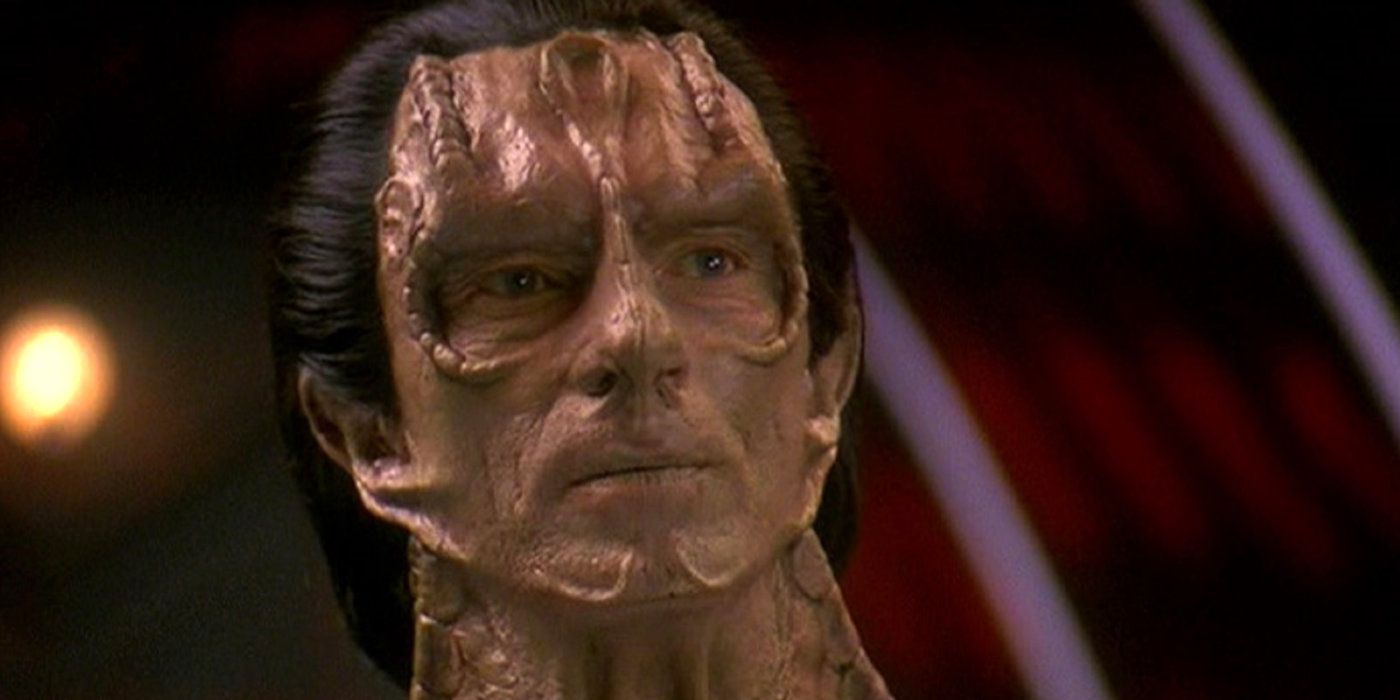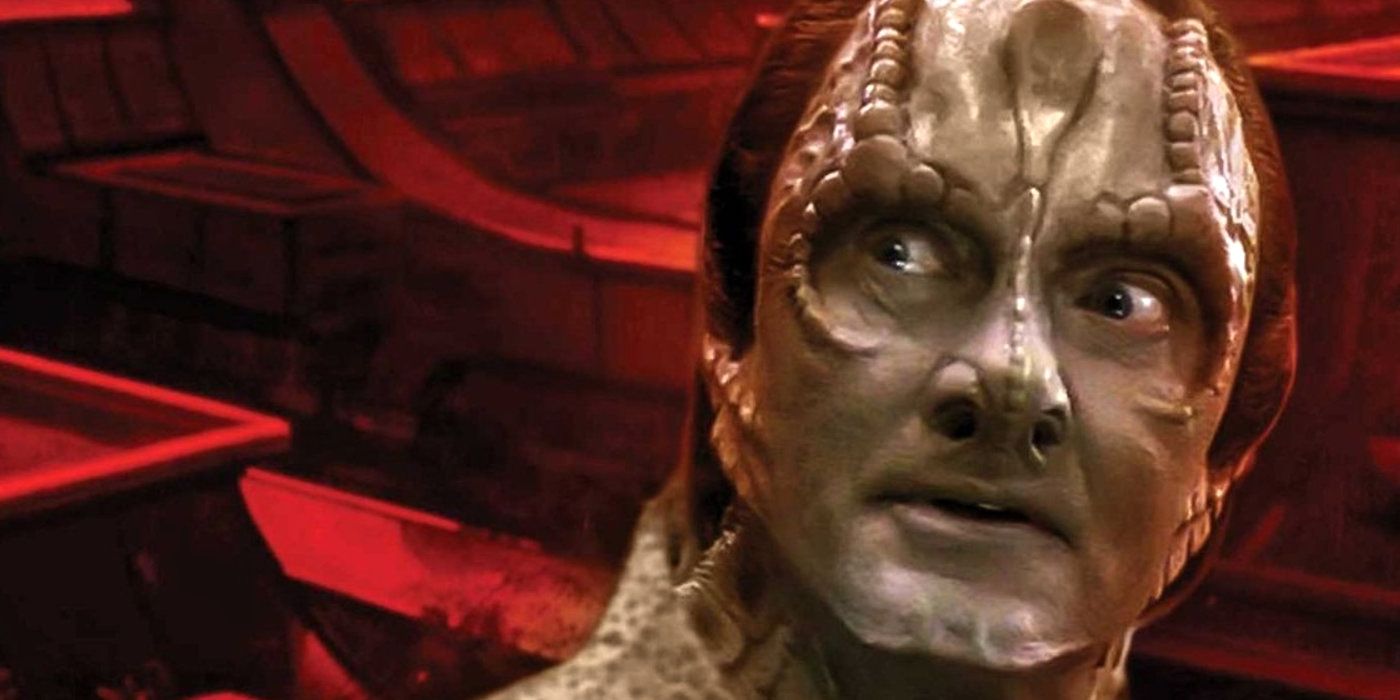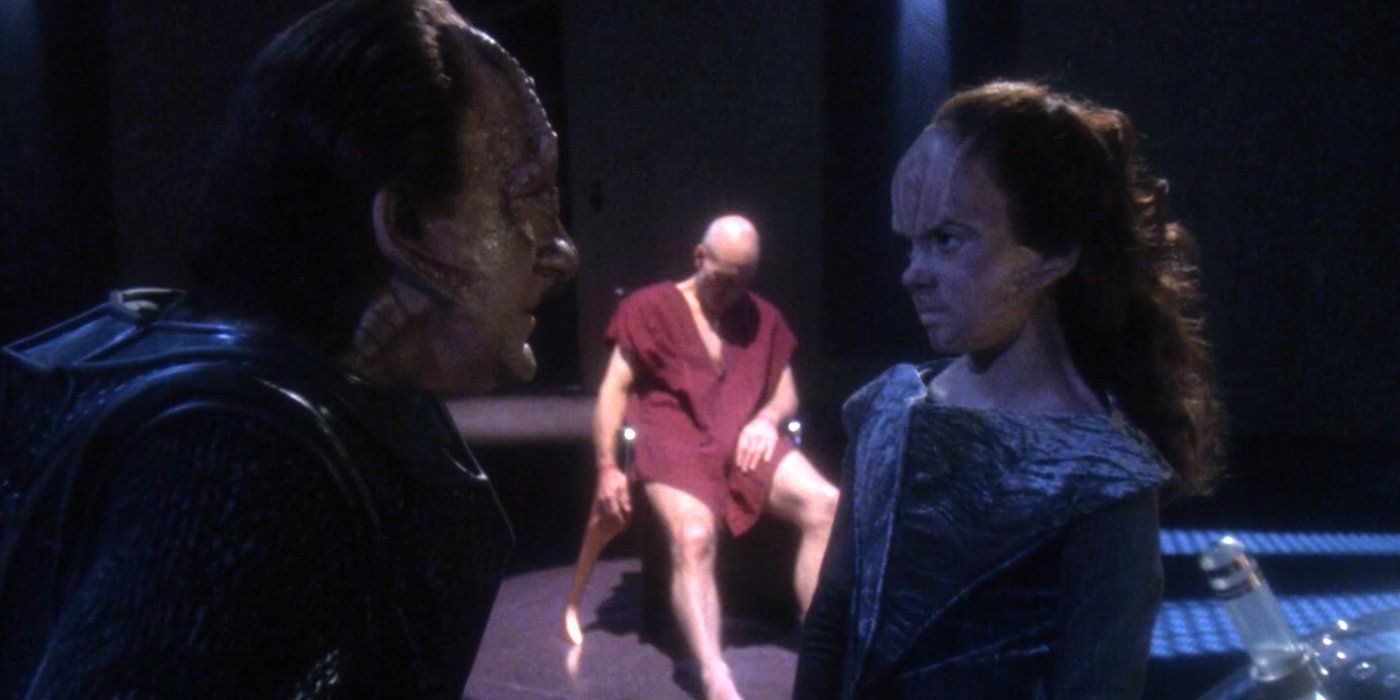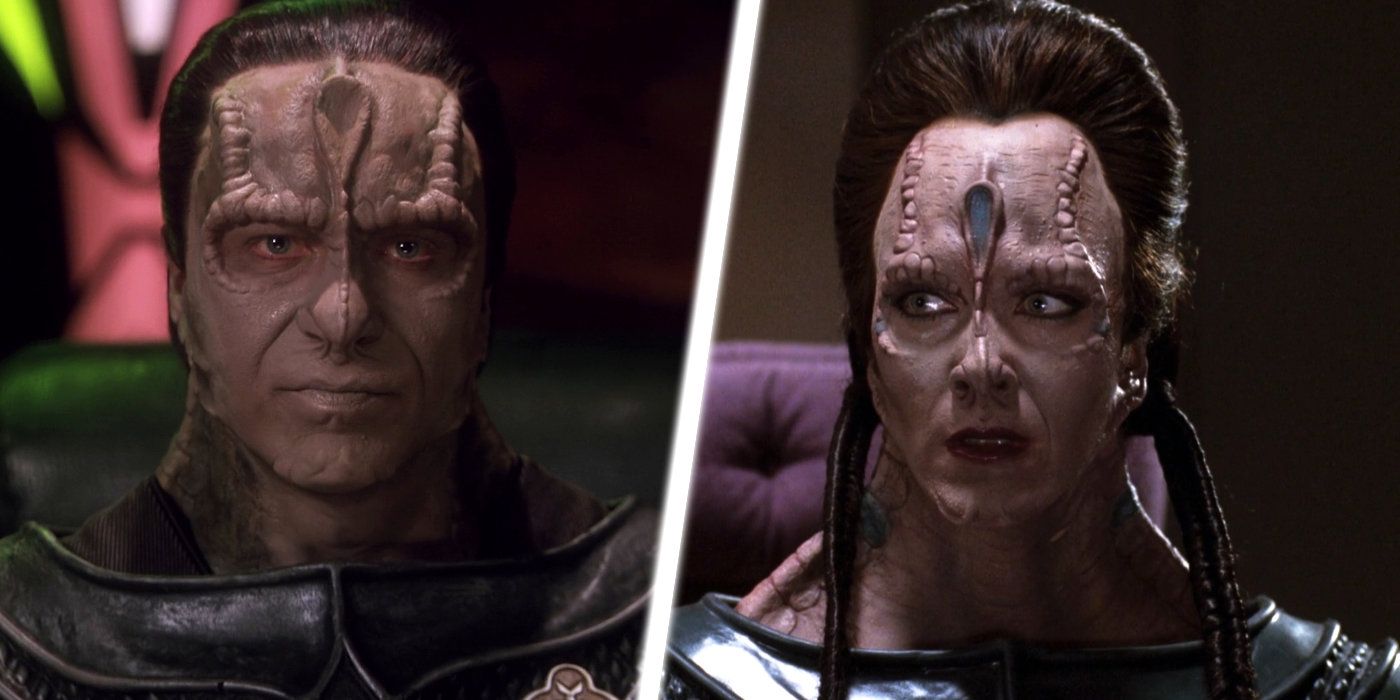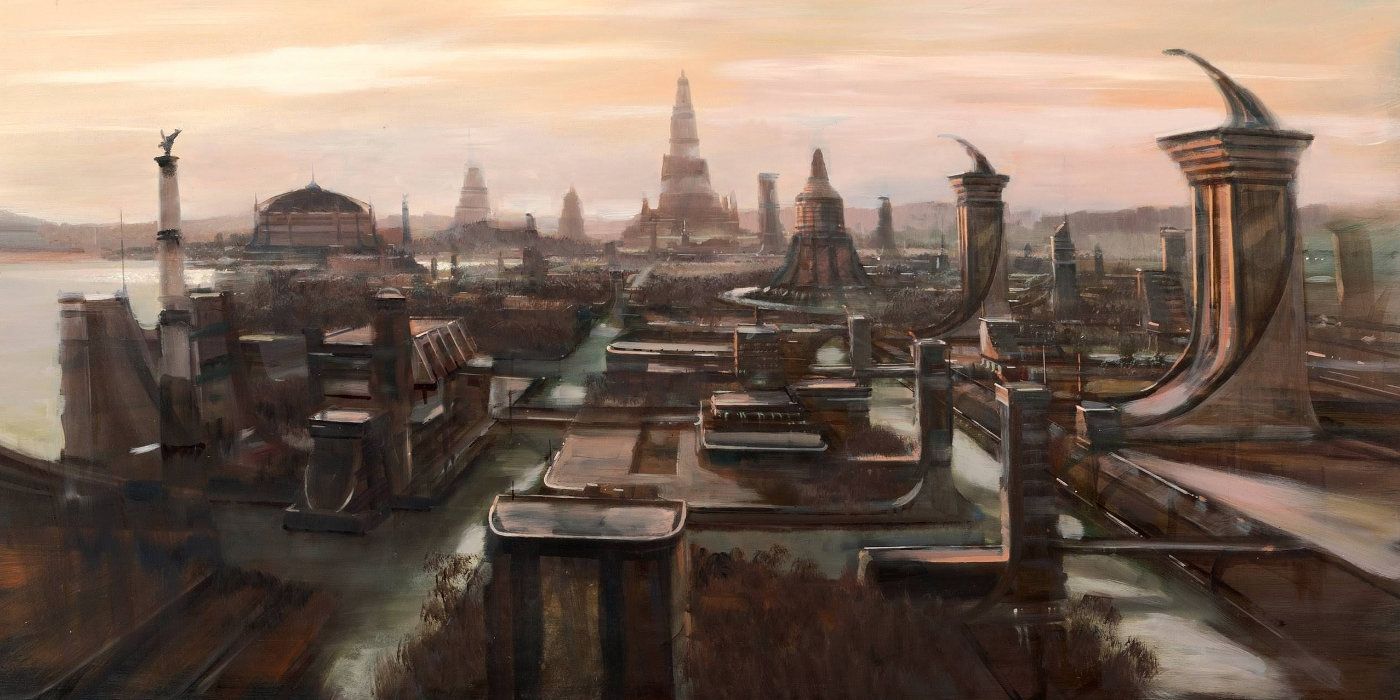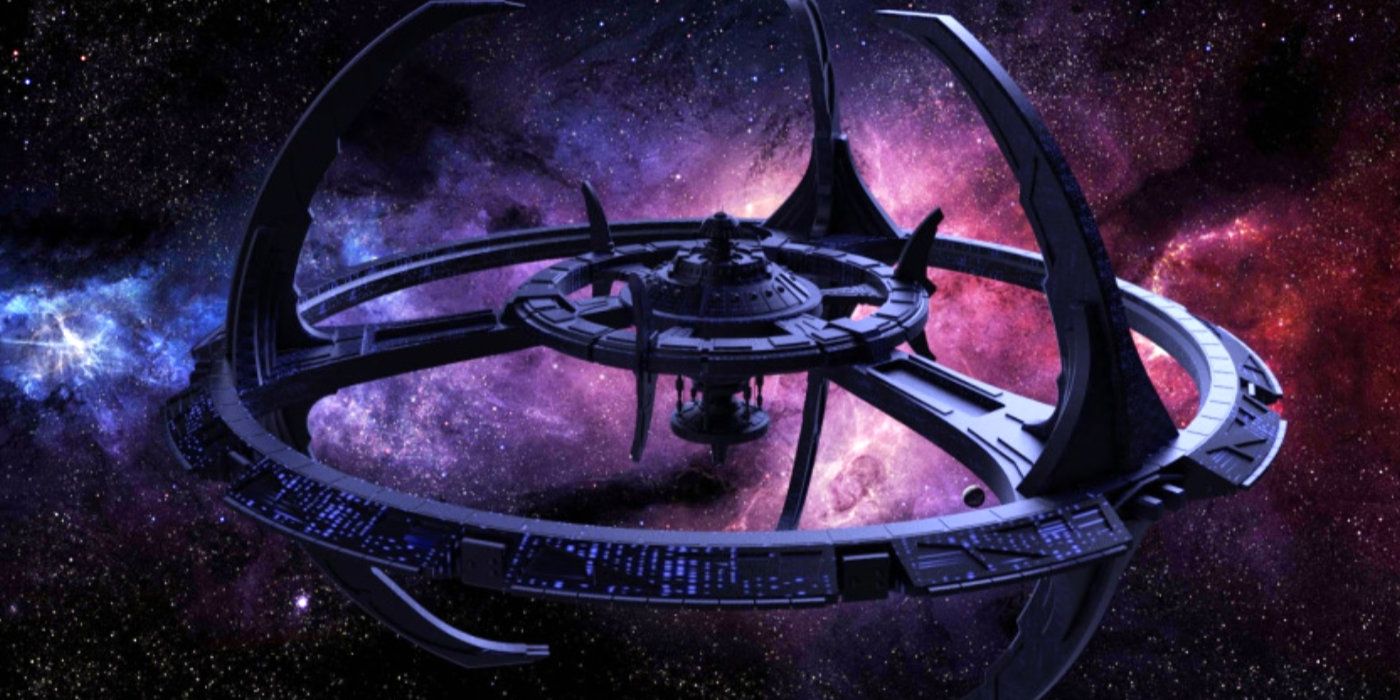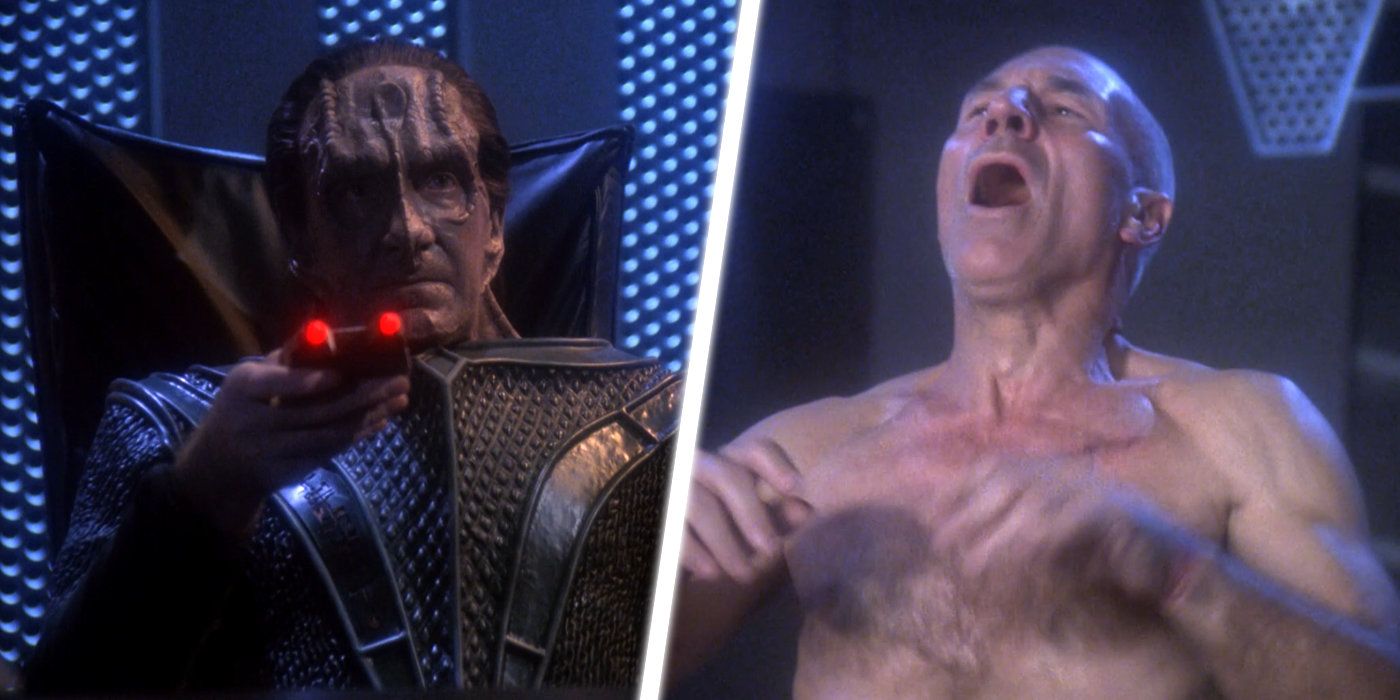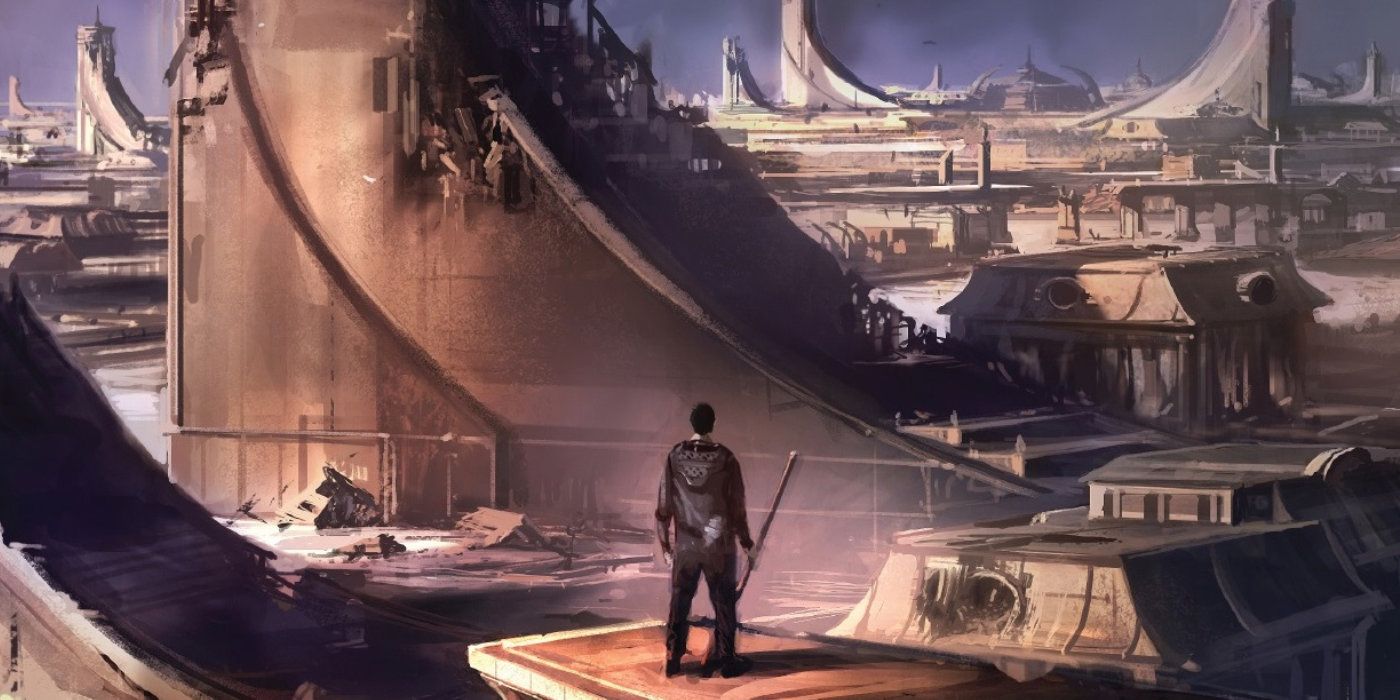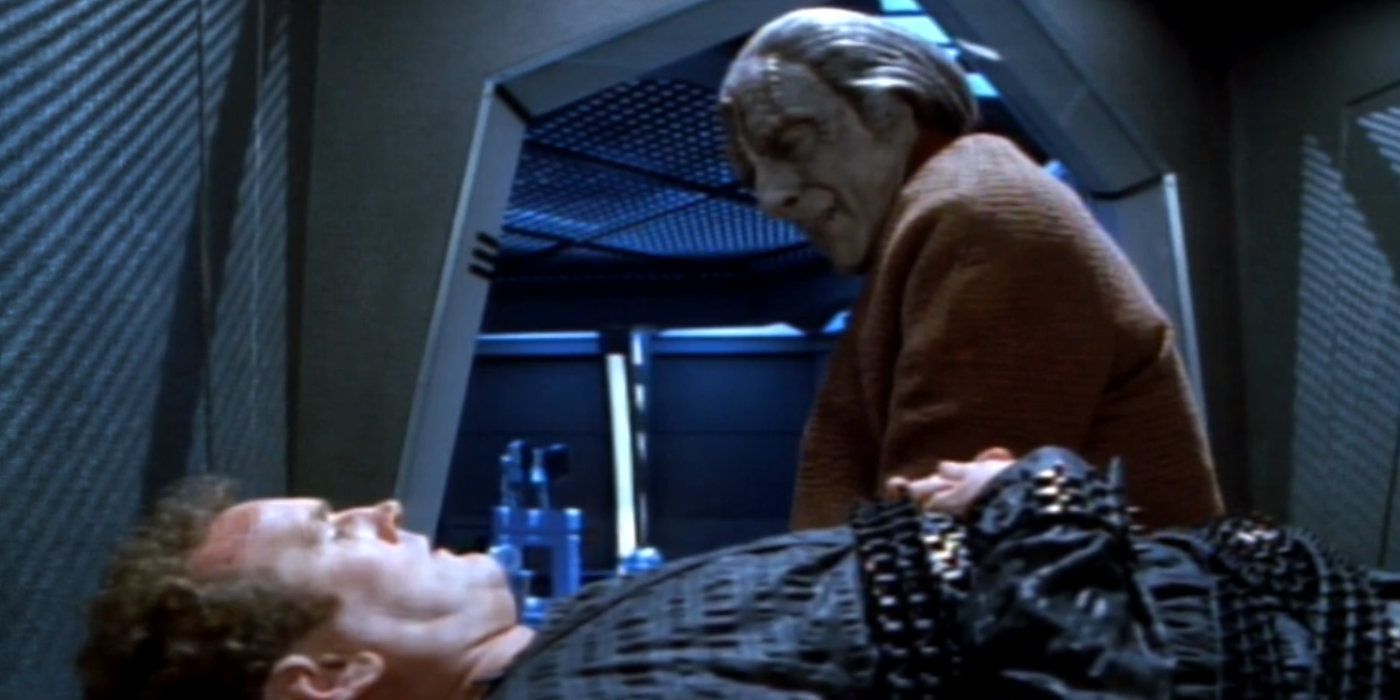When one thinks of villainous races in the Star Trek universe, the Romulans or the Borg tend to pop into mind. After all, these are two of the most iconic antagonists of the entire franchise and frequently used as a plot device for the Federation to battle. Many other races in the known galaxy are far more interesting, however.
This goes double for the Cardassians, a race first introduced in Star Trek: The Next Generation. They gained central prominence in the spinoff series Star Trek: Deep Space Nine, where they became one of the galaxy's biggest threats. To understand this enemy, it's good to take a long look at their culture and practices.
Mental Discipline
Cardassians consider mental discipline a rudiment of their society, and they train children from a young age to develop several skills that can later benefit them in their dealings as adults. These traits have been adapted to serve the military wing of the Cardassian Union, making them especially crafty when it comes to diplomatic manipulation.
For instance, Cardassians possess photographic memories, a trait developed in their early years. This would have numerous intellectual advantages as they progressed through life. They were also capable of resisting Vulcan mind-melds via a series of strict mental discipline routines.
Born To Distrust
The Cardassian penchant for manipulation may have sprung from a cultural development by which distrust was viewed as favorable. Not only was this mindset encouraged when it came to dealings with other races, but it was also fostered and nurtured among its own citizens. As such, conflicts frequently broke out.
To the Cardassians, suspicion of others wasn't a negative, but rather, a natural necessity of life. Such a mindset was no doubt to blame for the antagonistic nature of the species when it came to dealing with the Federation, the Bajorans, and each other.
Family Is All
Cardassians view family as the single most important thing in their lives, and those bonds run deep. They view children with such high regard that they will actively include them in their daily routines, as evidenced when Captain Picard was held hostage by the sadistic Gul Madred, who allowed his daughter to see him in a beaten state.
However, this is ironic given the Cardassian Union's Communist-style structure, which places the State as the number one priority for all Cardassian people. Despite the decree, unwavering loyalty to the State often plays second fiddle to the deep family bonds that Cardassians share.
Gender Equality
Cardassian males and females were considered on equal footing in society, with neither attempting to dominate the other. Rather, the two fell into common respected roles, with some cross-over. For instance, males tended to pursue military assignments, while females were more interested in technological and engineering research.
Both of these played a vital part in making the Union as strong as it was. However, many males and females frequently dabbled in each other's career choices, and this was not considered shameful or distasteful.
Intellectualism
While many Star Trek fans may have viewed the Cardassians as a race of opportunistic timber wolves, they were actually an intellectual species on par with some of the brightest in the quadrant. Cardassians viewed the acquisition of knowledge and the pursuit of philosophy and open debate to be key strengths within their culture.
As such, the dinner table frequently became a hot-bed for conversation between adults and children alike. Cardassians viewed debate as a skill that helped broaden their understanding of things, expose them to new ideas, and help them understand both friend and foe to a much better degree.
Lower Standards
Despite their penchant for intellectualism, Cardassians had trouble applying the same discipline to their engineering standards. When compared to Starfleet's technological accomplishments, the Cardassian Union almost always operated below what would be considered optimal efficiency.
In fact, the Deep Space Nine season 1 episode "Babel" hinted that Cardassians accepted an efficiency rate of just 20% percent. Still, the Cardassian Union had enough going for it that it still remained a major galactic threat.
Torture Was Mandated
Cardassians had little regard for their prisoners, whether they shared the same blood or not. The most obvious and heinous example of their cruelty lay in their history with the Bajorans, and the many atrocities committed in their war campaigns. This cold and indifferent approach was viewed in a pragmatic light by the Cardassians.
Torture was considered a fully acceptable and logical practice in order to extract information out of victims. The secretive Obsidian Order would even force some recruits to torture friends or family members as a test of loyalty, before being accepted into their ranks.
Religion
The Cardassians once had a thriving religious spirit, but this broke down in later years when the population suffered massive conflicts, food shortages, and plagues that cut a swathe through their numbers. As these problems grew, so too did demands for a solution. Eventually, the Cardassian Union was formed to feed the people and get them back on their feet.
Subsequently, the old religion died in favor of an equally religious loyalty to the State, which could never be questioned. Captain Picard made note of this during a conversation with Gul Madred by pointing out that Cardassian children's bellies may be full, but their spirits were empty.
Justice System
For the Cardassians, every courtroom trial was an opportunity to showcase its power. Cardassians did not believe in a fair trial, but they knew what effect the illusion of one could have on citizens who wanted to see "guilty" parties receive justice. Homeworld propaganda dictated that the State was always right and that the accused were always guilty.
Of course, this was yet another tool of oppression the Union was able to use over anyone that dared challenge or disagree with its policies. By rigging the outcome of the trial beforehand, the Union appeared to be cleaning up society, which further fooled the oppressed populace into remaining blindly loyal to the cause.
The Obsidian Order
Not much is known about the secretive Obsidian Order, other than the fact that they are an obvious parallel to the KGB of 20th century Earth. In order to keep the populace suppressed and loyal to the State, the Obsidian Order was enacted to keep close tabs on citizens, and dish out brutal punishment for dissenters of groupthink.
The Order was dissolved, but it eventually gave rise to the Cardassian Intelligence Bureau. This was a natural evolution of the brutal and fascistic methods first implemented by the Order, and it was regarded as a far more lethal instrument wielded by the State's establishment rulers.

